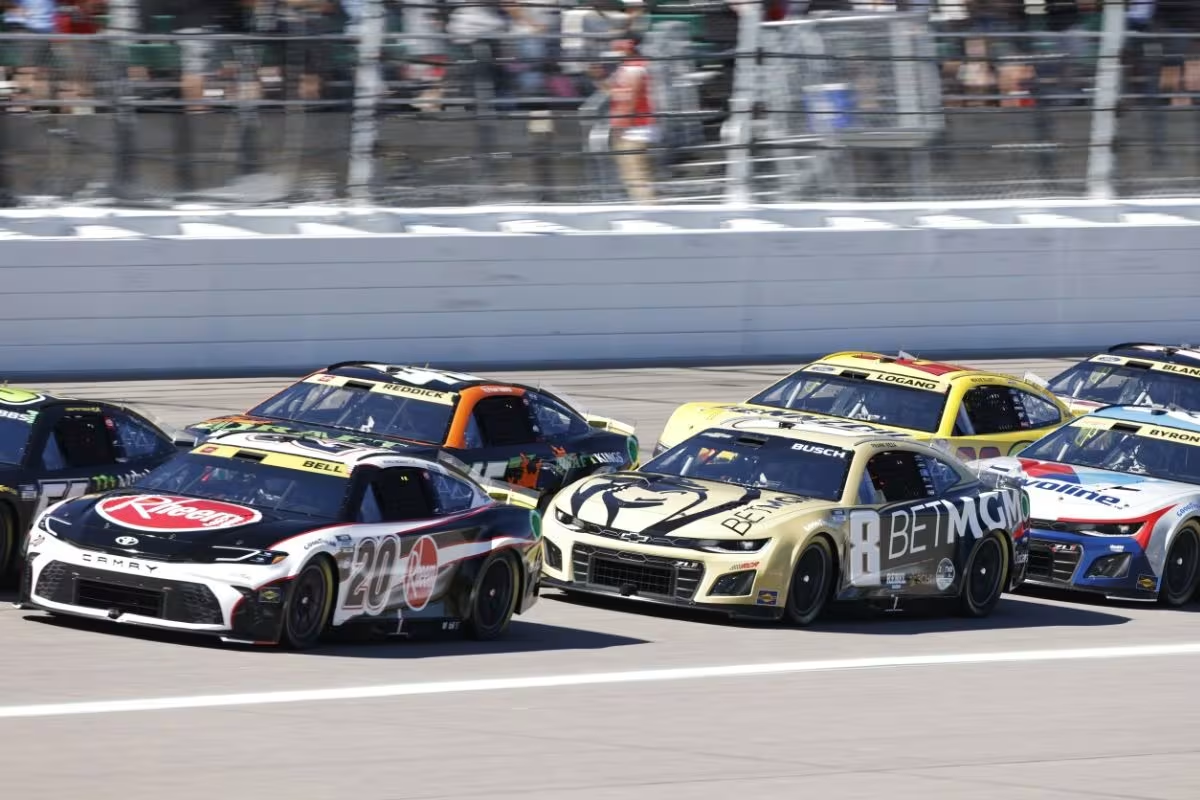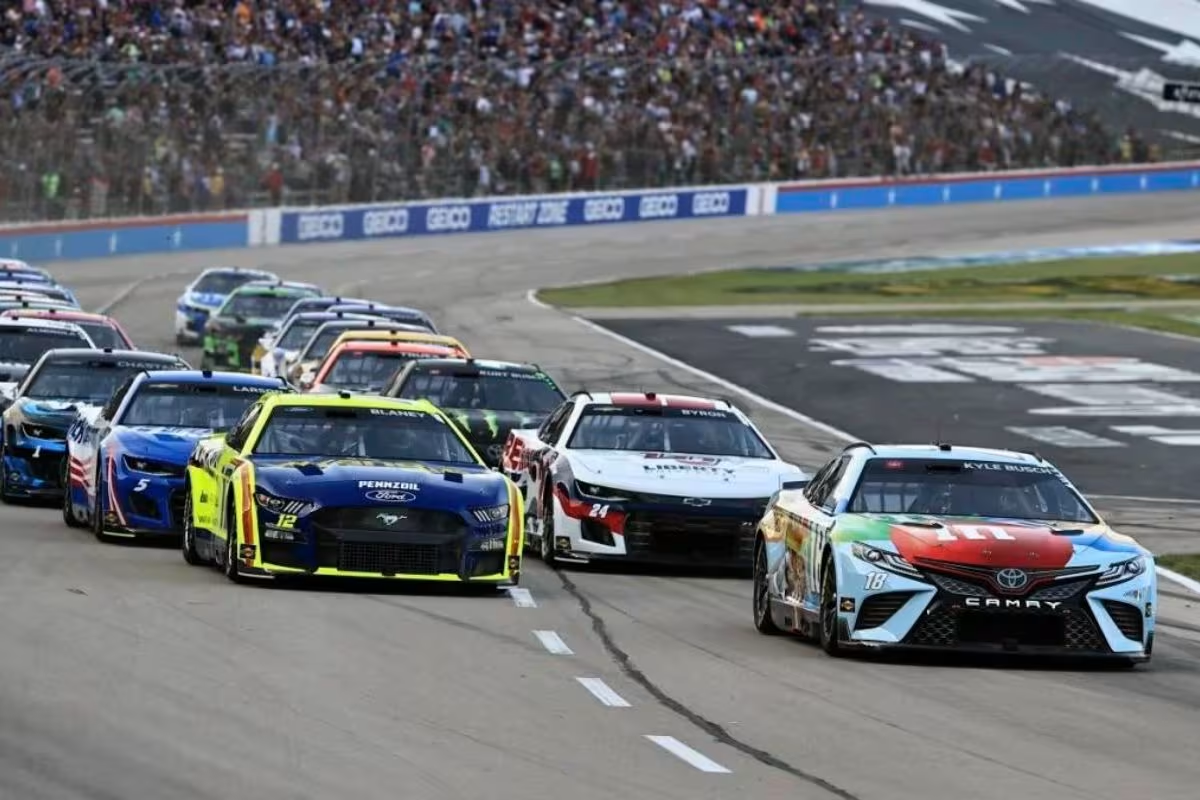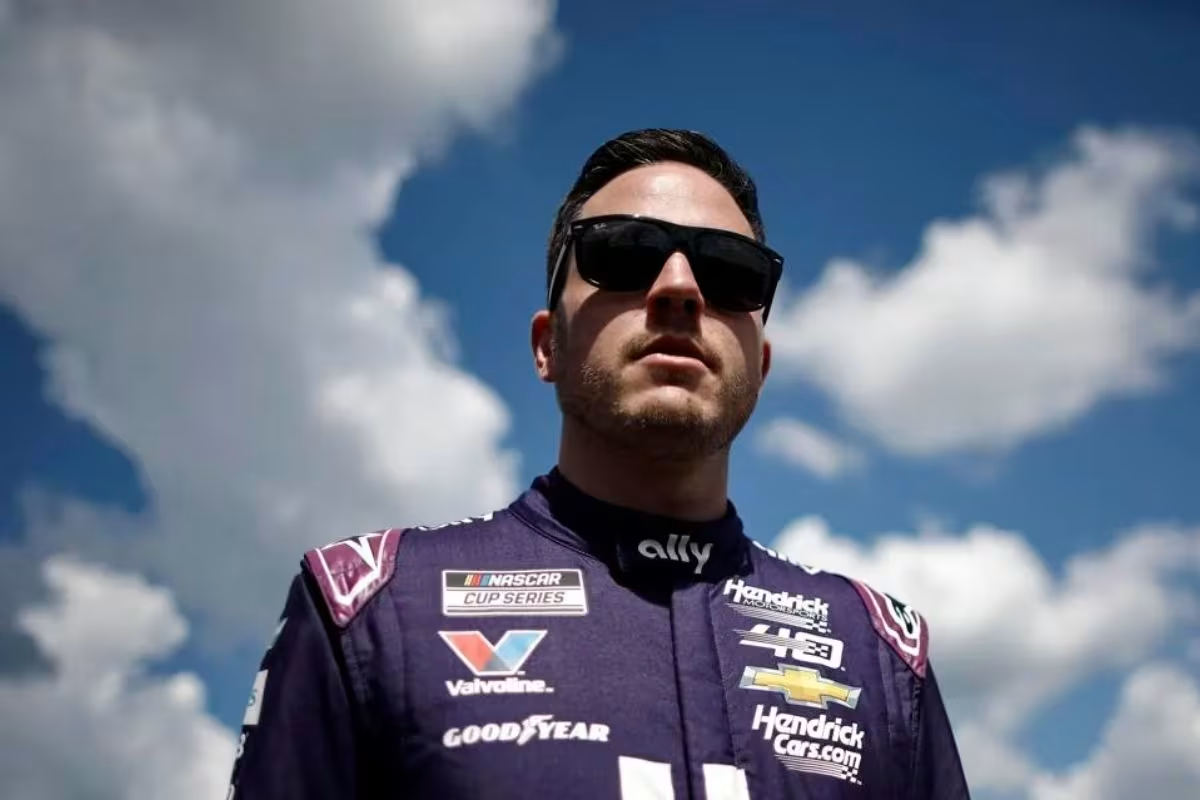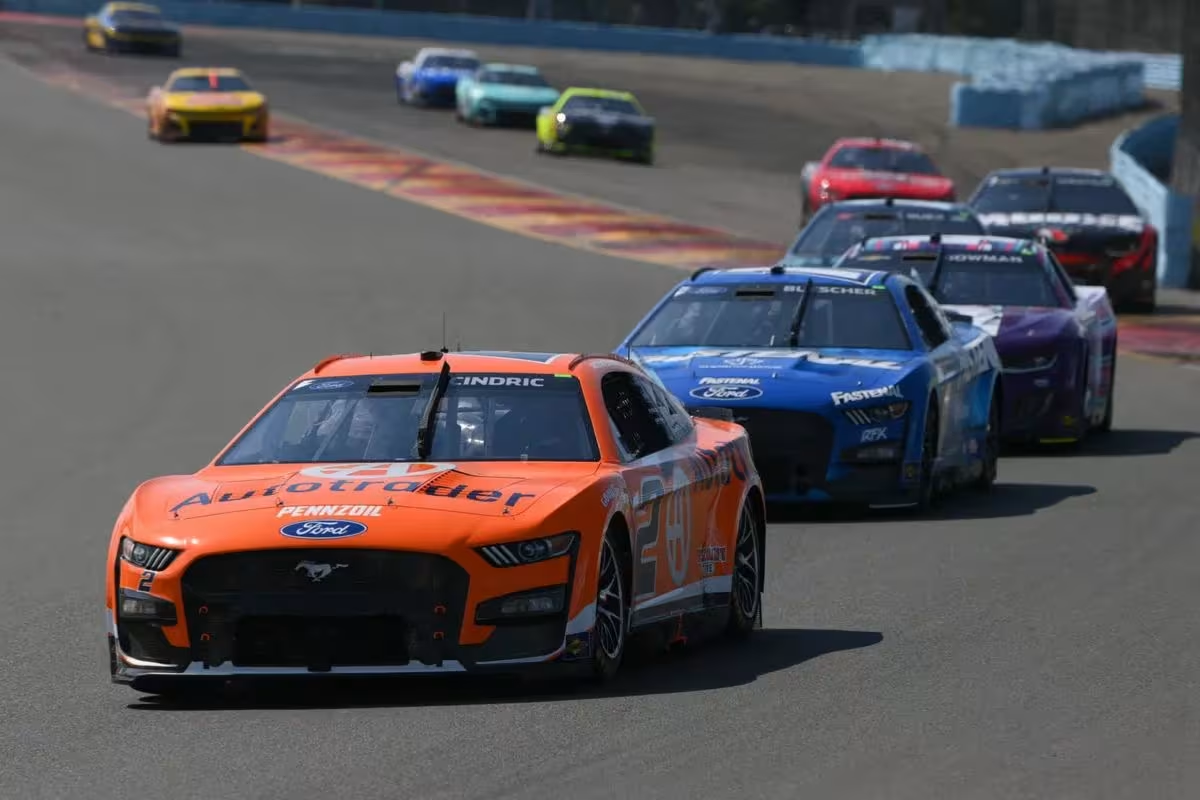NASCAR insider uncovers RCR‘s cheating tactics revealing how Richard Childress Racing (RCR) has used underhanded methods, like creating debris cautions through specialized vehicle setups, to gain an edge. This raises serious ethical concerns about NASCAR’s integrity. Manipulating race conditions shows the growing desperation among teams as they struggle to keep up with changing rules.
Key Highlights
- Richard Childress Racing (RCR) resorted to creating debris cautions using specialized setups to manipulate race outcomes and gain tactical advantages.
- This tactic raises significant ethical concerns regarding the integrity of competition within NASCAR and its commitment to fair play.
- NASCAR has responded with stricter regulations and enhanced post-race inspections to combat cheating and preserve the sport’s authenticity.
- Historical cases, like Alex Bowman’s disqualification, highlight the importance of adherence to regulations for maintaining NASCAR’s integrity.
- The ongoing evolution of cheating tactics threatens competitive fairness, prompting a need for continuous adaptation of regulatory frameworks in the sport.
Desperate Measures in NASCAR: Cheating for an Edge
Cheating in NASCAR often stems from NASCAR teams‘ desperation to remain competitive, particularly when faced with formidable rivals. In an environment where precision and performance are paramount, the strain to succeed can lead teams to employ unethical tactics. This phenomenon is especially pronounced among teams struggling to keep pace with the elite, as evidenced by Richard Childress Racing‘s attempts during the 2004 season with driver Robby Gordon.
RCR’s crew, under the leadership of chief engineer Chris Andrews, found themselves in a precarious position ahead of the Dover race. Acknowledging their limitations in the face of the dominant Evernham teams, the crew was acutely aware that without a competitive edge, they would likely fall behind. This realization often motivates teams to investigate the boundaries of legality, leading to compromised integrity.
The decision to manipulate race setups is not an isolated occurrence but a reflection of a broader trend within NASCAR. As teams aim for excellence, the temptation to cut corners becomes increasingly pronounced, blurring the lines between innovation and deception.
Richard Childress Racing’s Plan for a Debris Caution
As teams in NASCAR continually seek competitive advantages, cutting-edge tactics can sometimes blur ethical boundaries. Richard Childress Racing (RCR) has reportedly devised a plan that exemplifies this tension, employing ingenious methods to create debris cautions during races. The tactic involves a specialized setup engineered by crew chief Chris Andrews and his team, who developed a mechanism that could tactically deploy debris, thereby manipulating race conditions.
“We did the three of us crew chiefs; we got this aluminum insulation kind of quilted stainless steel-looking stuff that you’d go put between the exhaust and the driver’s seat. So we cut pieces of it and fold over it, and everything we got with our car chiefs and safety wired up in the transmission tunnel, and we ran a piece of safety wire like up through the shifter boot.” – Chris Andrews
The essence of this plan lies in the use of aluminum insulation and stainless steel material, intentionally placed within the vehicle to disrupt the race without direct interference. By carefully wiring these materials in a concealed manner, RCR aims to generate a scenario that would prompt race officials to call for a caution, thereby providing a considerable advantage at critical moments.
This disclosure raises considerable questions about the integrity of NASCAR and the lengths to which teams will go to secure victory. While innovation is a hallmark of the sport, the ethical implications of such tactics cannot be overlooked, threatening to undermine the very foundation of competitive racing.
What happens when you need a caution but can’t throw a water bottle out of the window?
Another hilarious story from Chris from his days with Robby Gordon at RCR on the latest It’s Not The Car podcast.https://t.co/asbtUVEug3 pic.twitter.com/bOvfNISseE
— Bozi Tatarevic (@BoziTatarevic) October 18, 2024
Robby Gordon’s Failed Attempt at Dover in NASCAR 2004
Frequently, the complexities of NASCAR racing reveal the lengths to which drivers and teams will go in pursuit of victory, as demonstrated by Robby Gordon‘s ill-fated race at Dover in 2004. In this instance, Gordon’s team implemented a controversial tactic intended to gain an advantage by bending the rules. However, despite their tactical planning, the execution did not yield the desired results, leaving Gordon unable to stay on the lead lap.
Robby Gordon’s experience at Dover exemplifies a critical aspect of NASCAR culture: the belief that pushing the boundaries of legality can lead to success. The team’s plan hinged on the anticipation of the leaders approaching, with a strategy to deploy a specific performance mechanism as a last-ditch effort. Yet, even with this calculated approach, Robby Gordon expressed frustration, having already “sucked it up” while waiting for the leaders, ultimately realizing that their attempts were futile.
“I told Robby when the leader gets a straightaway back. I’m gonna tell you, Robby, you need to suck it up till the leaders come. When I tell you that you pull this out. Race starts, we’re going, we’re awful leaders are coming, and I’m like waiting and waiting. I key to mix, and I go, Robby the leaders are coming you need to suck it up, and he goes, I sucked it up five laps ago.” – Chris Andrews
The episode serves as a microcosm of the tension between innovation and integrity within the sport. While NASCAR traditionally has allowed for a degree of creative engineering, the advent of more stringent regulations has made such tactics increasingly risky.
Alex Bowman’s NASCAR Playoff Disqualification Overweight Car
In NASCAR, where every ounce counts, Alex Bowman’s playoff disqualification due to an lightweight car highlights the essential importance of adherence to regulations. The incident raises questions about the stringent nature of NASCAR’s compliance standards and the potential pitfalls teams may encounter while aiming for competitive advantage.
The Next-Gen race car has introduced a more regulated framework, requiring teams to source parts from NASCAR-certified vendors and limiting modifications. Despite these restrictions, Alex Bowman’s team, under Blake Harris, attempted to push the boundaries. Although the car passed initial inspections at Roval, it ultimately failed in post-race scrutiny, exceeding the allowable weight margin of half a percent, approximately 17 pounds.
The Evolution of NASCAR’s Cheating Tactics and Regulations
Throughout the history of NASCAR, the landscape of cheating tactics and regulatory measures has evolved considerably, reflecting advancements in technology and a shift in competitive strategies. In the early 2000s, teams like RCR navigated the gray areas of the rules by optimizing their vehicles to meet minimum specifications while pushing the envelope on performance. This approach was exemplified by Jeff Gordon’s acknowledgment of the risks associated with adhering to tight regulatory limits, highlighting a calculated risk-taking culture prevalent in the sport.
“Our teams, in order to just make the best-performing race cars every weekend for our drivers, we know that we’ve got to stay as close to those minimums as possible. In this case, the 48 car, they just cut it too close and missed it. That’s on us.” – Jeff Gordon
Fast forward to 2024, the disqualification of Alex Bowman for an overweight car signals a notable change in enforcement and scrutiny. As the sport integrates more sophisticated technology, including telemetry and data analytics, the potential for teams to exploit loopholes has diminished. NASCAR’s regulatory body has responded by implementing stricter oversight and more rigorous post-race inspections, aiming to preserve the integrity of competition.
This evolution demonstrates a broader trend in motorsports, where regulatory frameworks are constantly adapting to counteract burgeoning technological capabilities. The current landscape suggests that the influence of teams and drivers on race outcomes has become increasingly limited, raising questions about the authenticity of competition.
As NASCAR continues to grapple with these challenges, the balance between innovation and regulation remains critical, impacting not only team strategies but also the fans’ perception of the sport’s integrity. The ongoing evolution of cheating tactics and regulations is a reflection of NASCAR’s commitment to maintaining competitive fairness in an ever-changing environment.
News in Brief: NASCAR Insider Uncovers RCR’s Cheating Tactics
The persistent presence of cheating within NASCAR, exemplified by tactics employed by Richard Childress Racing and historical instances such as Robby Gordon’s and Alex Bowman’s infractions, raises critical questions regarding the sport’s integrity. The evolution of these tactics, coupled with regulatory responses, highlights an ongoing struggle between competitive advantage and adherence to fair play in NASCAR.
ALSO READ: RCR Makes Major Pit Crew Changes After Embarrassing Incident at Charlotte Roval




